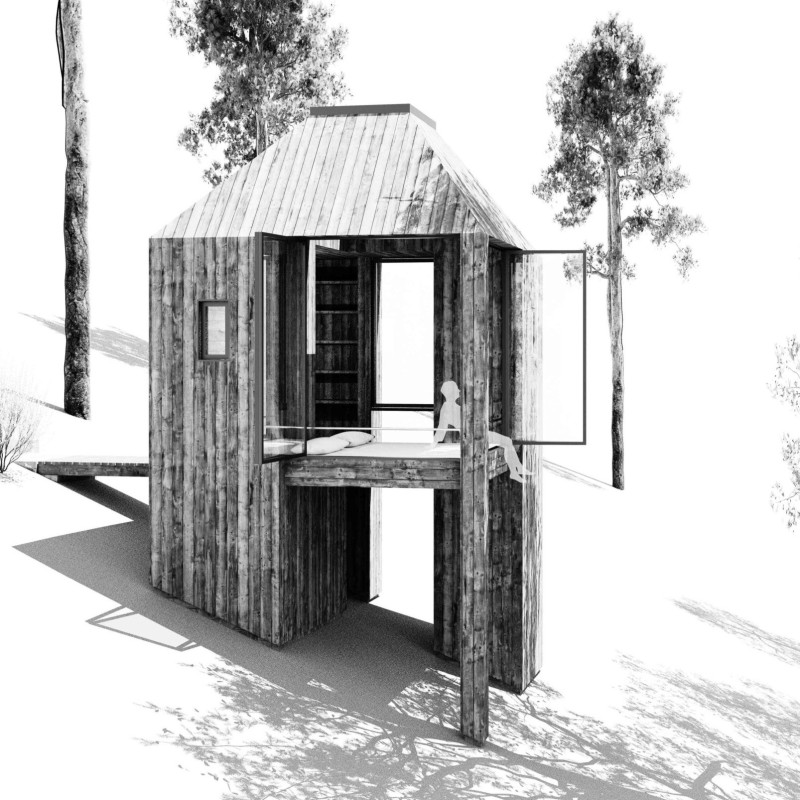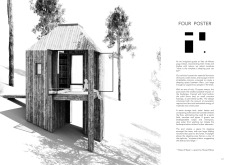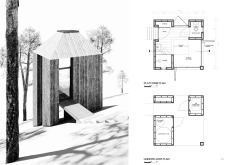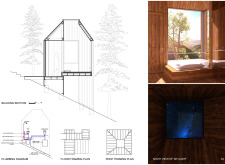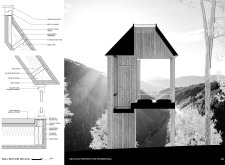5 key facts about this project
The Vale de Moses yoga retreat is designed as a place for guests to relax and reconnect with nature. At the heart of the retreat is a simple sleeping pod that aims to meet basic needs while having a minimal impact on the environment. The design centers around the idea of what constitutes the simplest form of a sleeping space, leading to a functional and unobtrusive structure.
Architectural Organization
The sleeping pod features three columns that include key facilities: a shower, water closet, and storage. In between these columns is a compact sleeping area accommodating two people. The total area is just 13 square meters, which helps to limit disturbance to the natural landscape and enhances the experience of being close to nature.
Material Use
Local lumber forms the main structure of the pod. The solid framework rests on small concrete footings that follow regulations for building safety. This choice of materials helps the pod blend in with its surroundings while reducing the need for extensive excavation during construction. As a result, the overall energy used in building the pod is significantly decreased.
Sustainability Features
Key sustainability aspects are built into the pod's design. A water storage tank, water heater, and composting toilet sit beneath the floor, removing the need for traditional septic systems or external piping. This clever arrangement contributes positively to the environment. Guests can also use biodegradable soaps, allowing grey water to irrigate the landscape, further supporting the local ecosystem.
Natural Interaction
Large windows open towards the forest, creating views that connect the interior with the outside world. These windows let in plenty of daylight, setting a calming atmosphere for guests. Above the sleeping area, a skylight offers a glimpse of the night sky, adding an element of tranquility and inviting moments of reflection during their stay.


